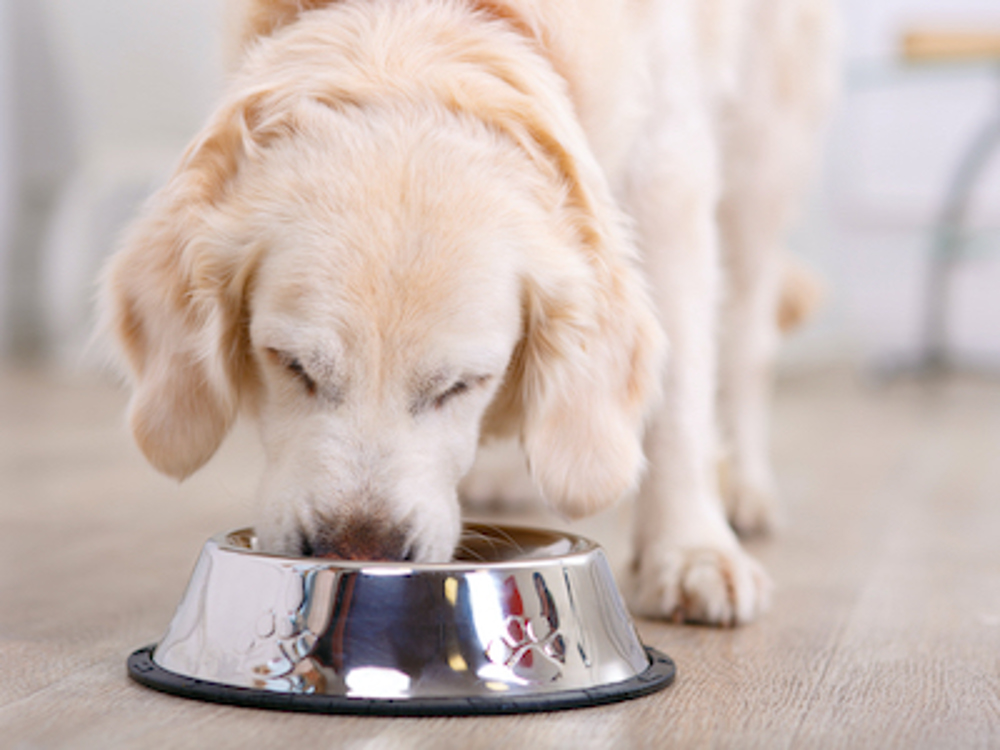
Dogs come in a variety of shapes and sizes and it is therefore important to understand the nutritional requirements of your pet. Differences in body size, metabolism, age and energy requirements all influence the type of nutrition your dog needs. Providing them with sufficient amounts of the appropriate food throughout their life will help to keep them in good health and at an ideal body weight and condition.
Large breed dogs are not all the same
Recent studies have shown that large breed dogs fall into two main groups, either robust or athletic. Large breed dogs have a different body shape either developed for strength or speed. Large dogs may be:
- Robust dogs generally have the same chest and waist measurement, giving the body a ‘cylinder-shaped’ look. They also have a massive body shape and powerful frame
- Athletic dogs have a deep chest and thin abdomen giving the body a ‘cone-shaped’ look. They are also lean and muscular and have long and powerful limbs
Different energy levels
Due to their leaner shape and genetic makeup, breeds such as German Shepherds, Pointers and Setters use lots of energy even when they are not running around and are categorised as athletic. Other breeds such as Golden Retrievers, Rottweilers and St. Bernards have a more robust physique and a higher level of body fat resulting in lower energy requirements when active and even while resting.
Dogs with a robust physique often have some difficulty staying slim. For these dogs, too much fat in their food can lead to an unhealthy weight gain. Athletic breeds need extra nutrients to maintain their high energy requirements and to support the development and maintenance of muscle.
Feeding your large breed puppy/dog
When selecting food for your dog you must ensure it is appropriate for their age, activity level, breed and any medical conditions.
Large breed puppies need fewer calories than smaller breeds as they mature at a slower rate, taking up to two years to reach adult body size. It is important that they are not overfed, as this can cause them to grow and put on weight too quickly. This can lead to added stress on the already growing bones of your large breed puppy, which can cause joint problems as they develop. Your puppy needs to grow gradually, and any weight gain needs to be managed.
Kibble size
When selecting food for your dog, consider the size of the kibble. A larger kibble will encourage your dog to eat more slowly, decreasing the risk of taking in too much air whilst eating, which can cause bloat. It will also aid in the digestive process and help with keeping your dog’s teeth clean.
Portion size
Always use the manufacturer's feeding guide on the food packaging and ensure that all food is weighed out. If you find that your dog still seems hungry or is putting on weight, check with your vet to ensure that you are feeding the correct type of diet and that the number of calories is correct for your dog.
Activities for your large breed dog
Exercising your dog is a huge part of responsible dog ownership and going for a walk should be part of their daily routine. As with their diet, the type of exercise should be tailored appropriately to your dog and your lifestyle.
Activity levels among dogs vary according to many factors. It is important to tailor the type of activity, intensity and amount of time being active to the individual dog. Puppies and senior dogs especially do not need long walks of high intensity and are more suited to shorter walks more often. Other types of activities, such as scent games, can provide mental stimulation. Hydrotherapy is also beneficial and allows the dog to exercise in water without placing stress on the joints.
For information about the exercise requirements of each breed, please refer to our Breeds A to Z. Alternatively, you can ask your vet or veterinary physiotherapist for advice.
Summary
Feeding your large dog requires you to keep certain points in mind when choosing a diet for them. Correct portion and kibble sizes are both important factors. Due to the specific nutritional requirements of larger dogs who burn energy more slowly than smaller dogs, it is a good idea to get a dog food that’s been specifically formulated with their size in mind.
